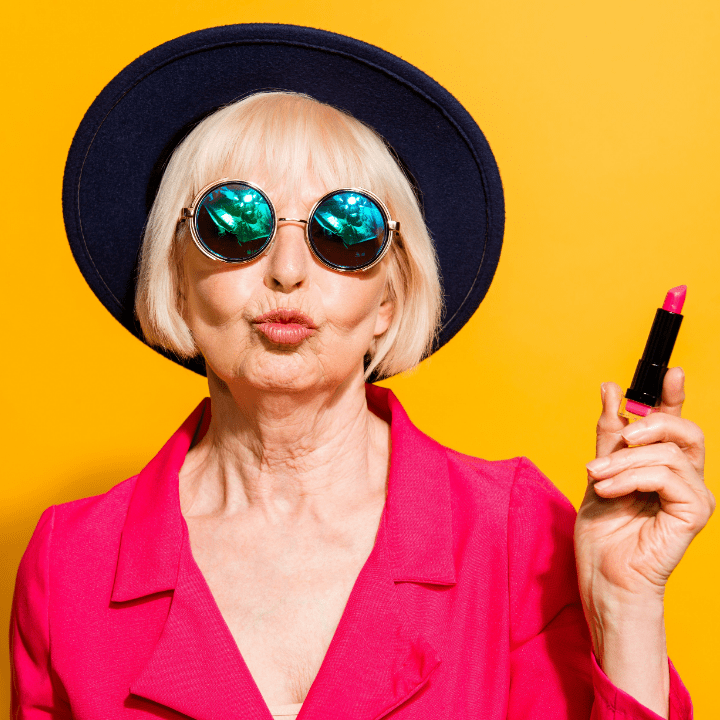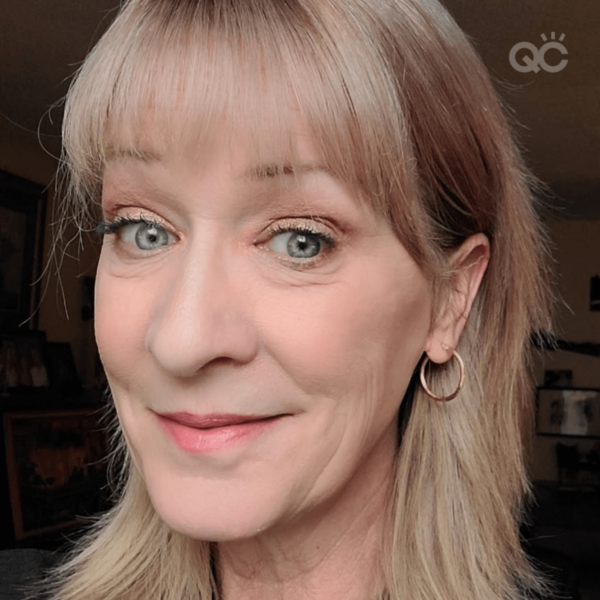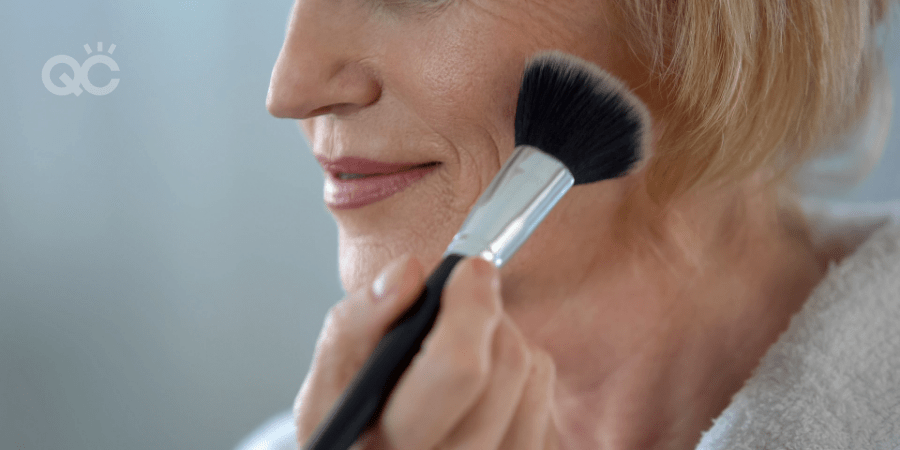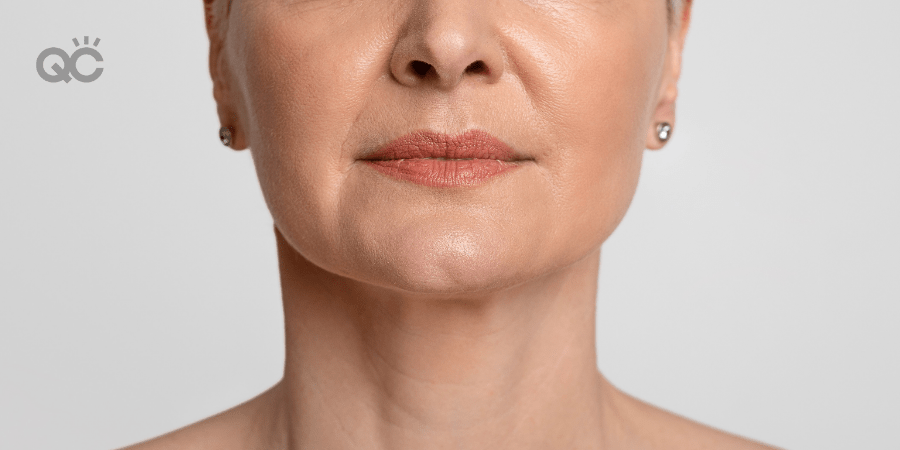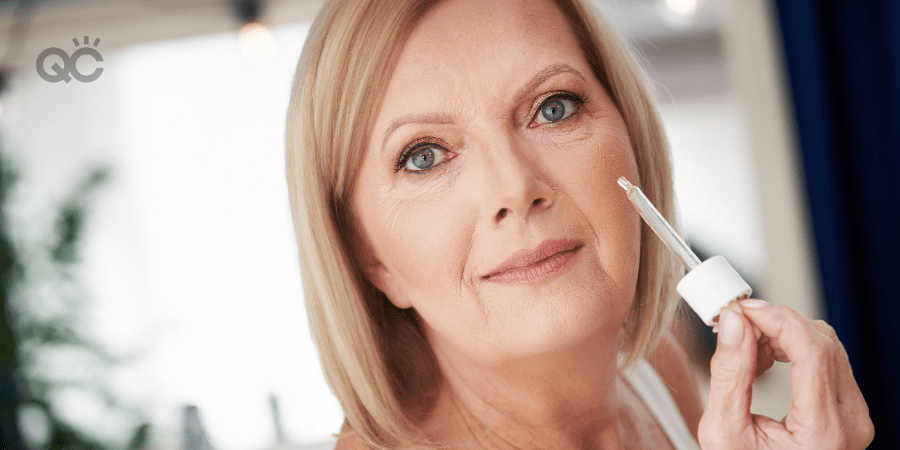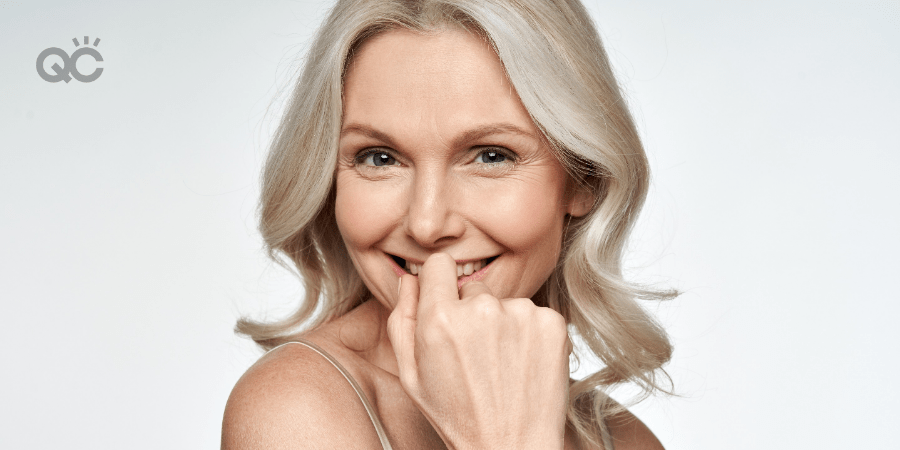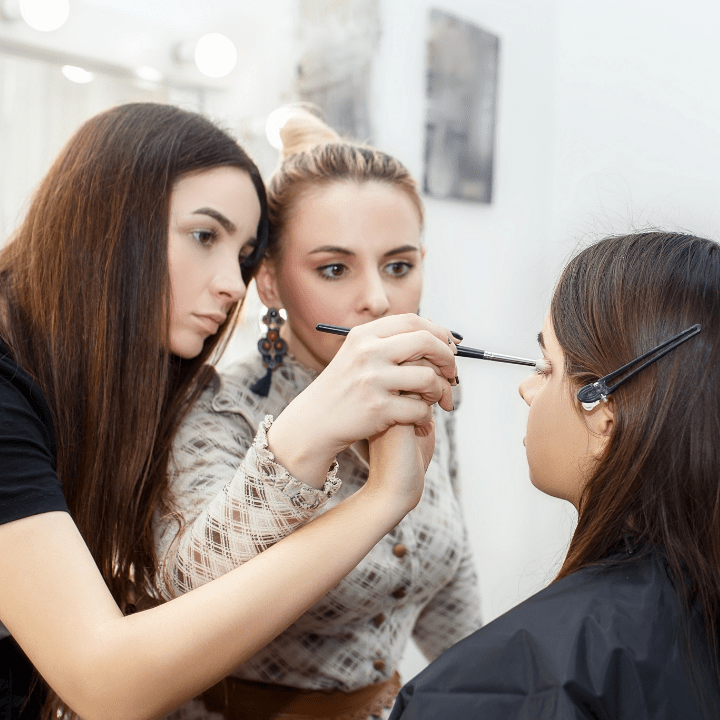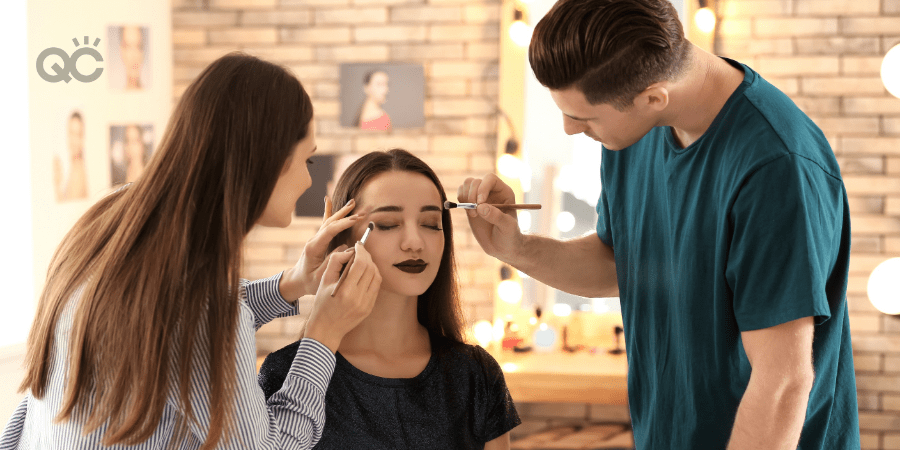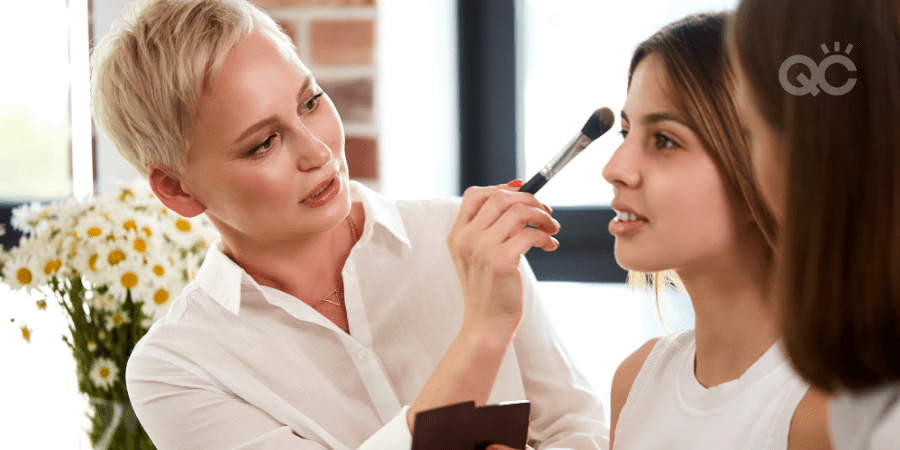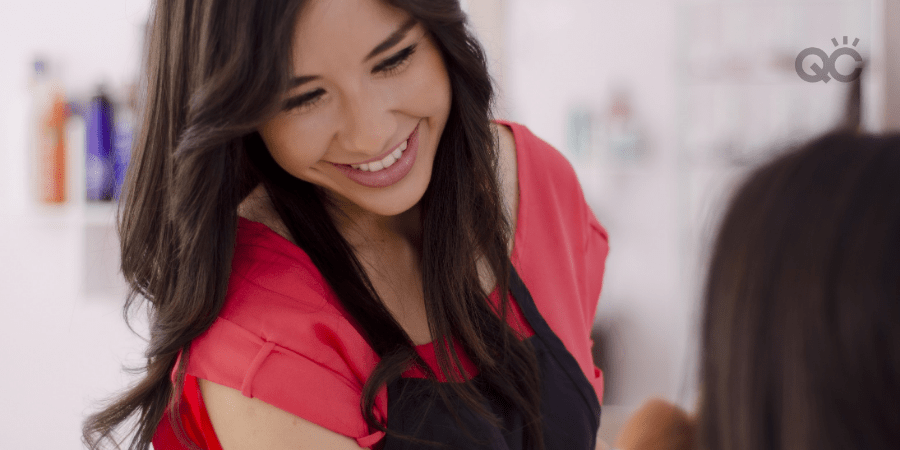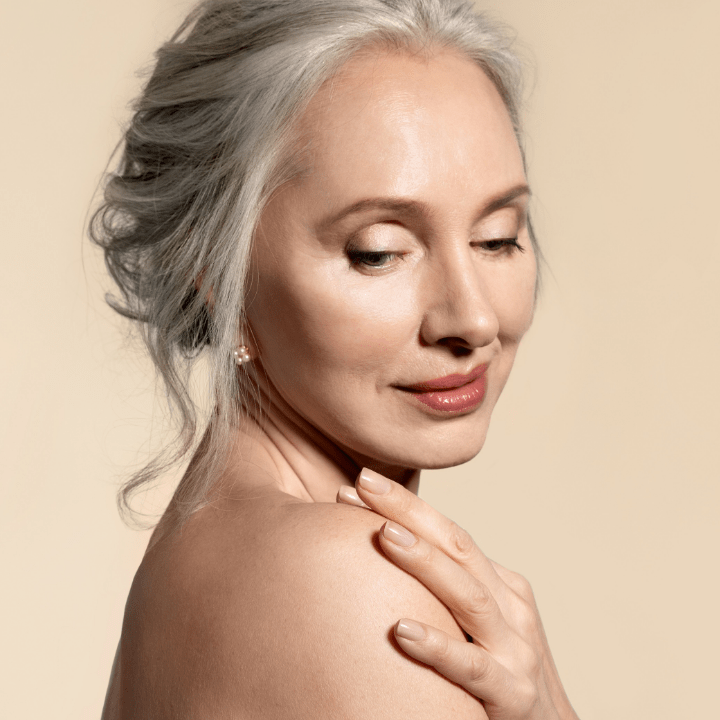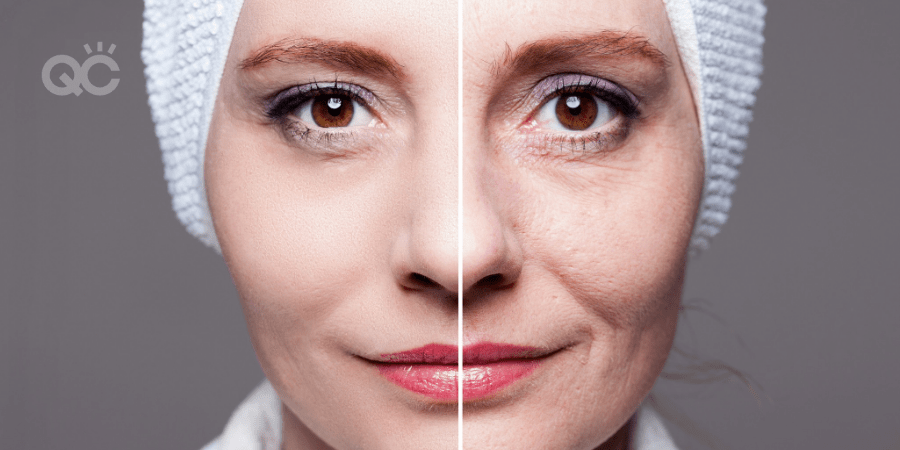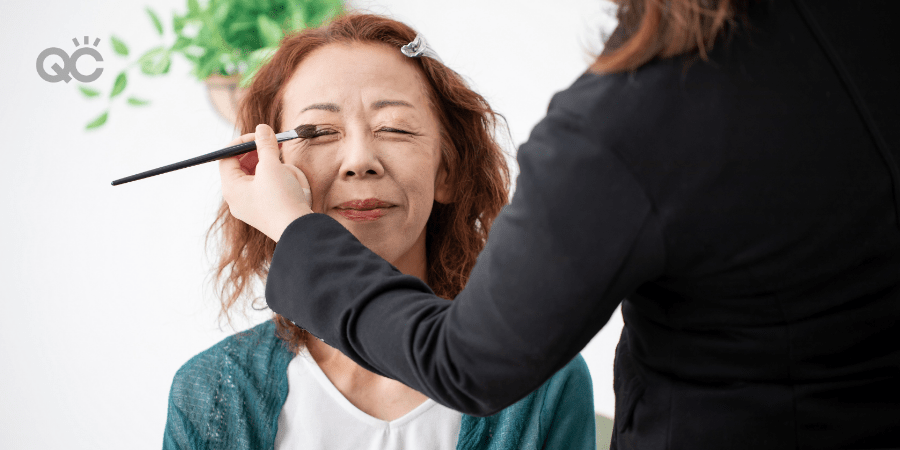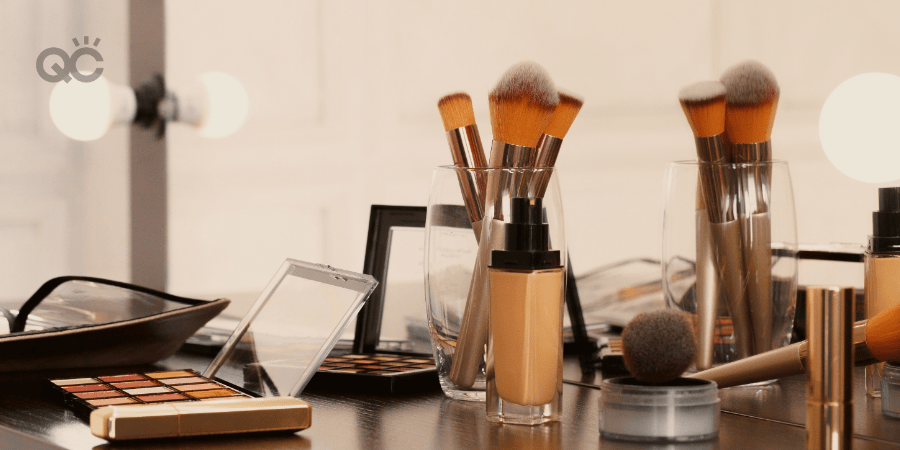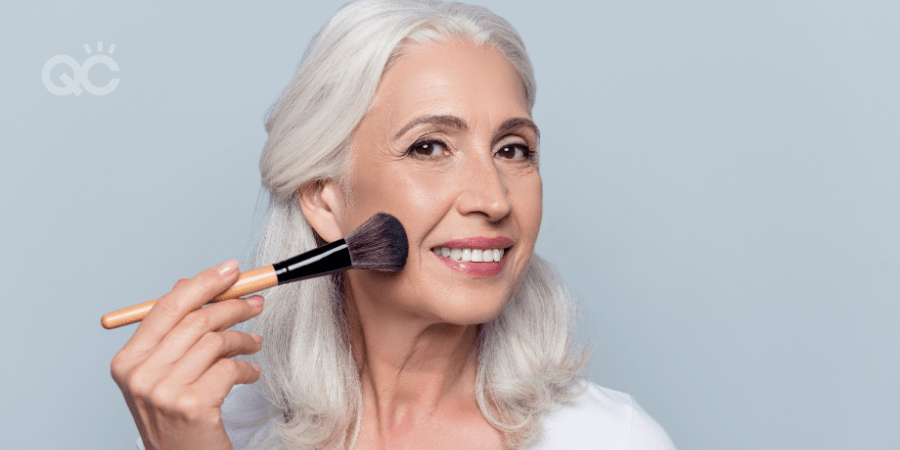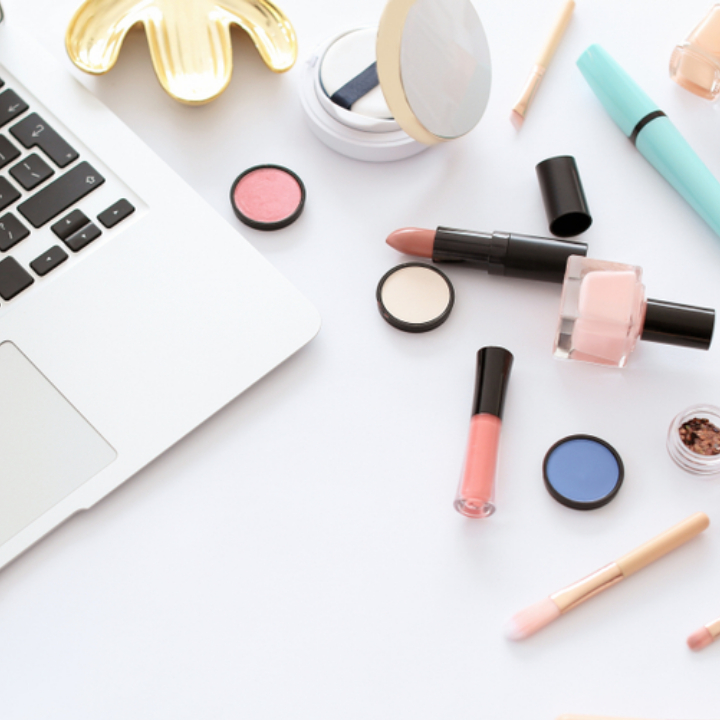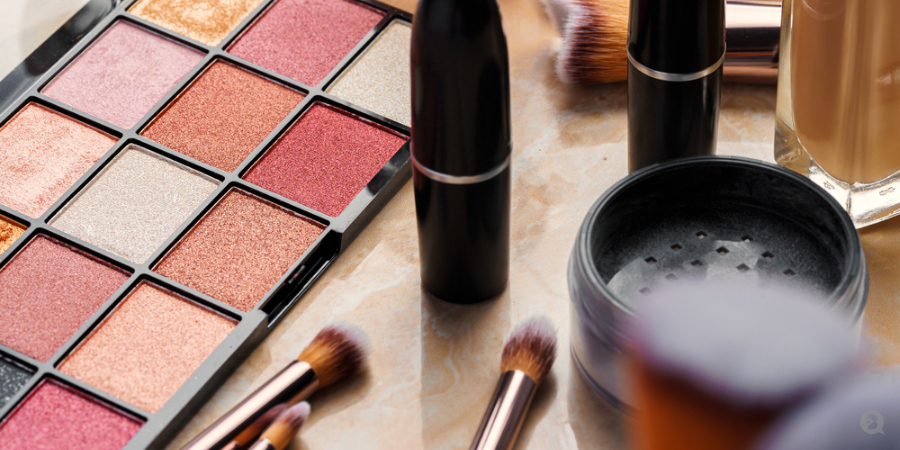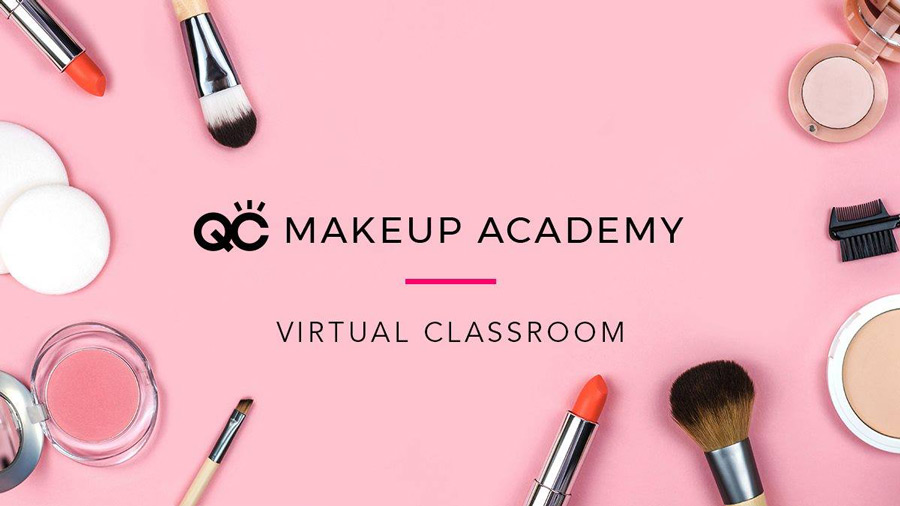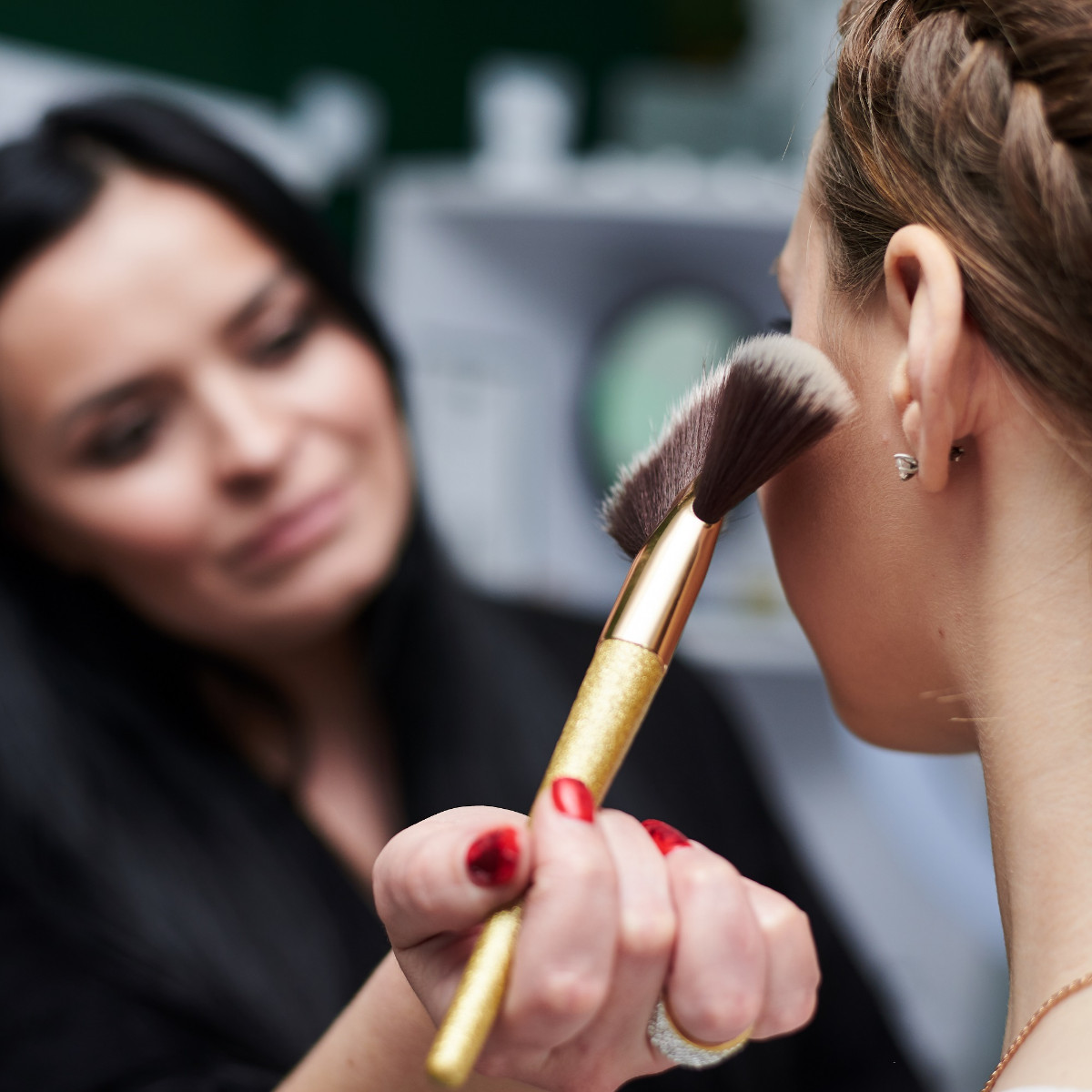
Thinking of getting professionally certified by enrolling in QC Makeup Academy’s Master Makeup Artistry Course? Cheri Stevens just graduated from this very program – and she’s here to tell you EXACTLY what you can expect!
To Learn More About Cheri, Read Her Full Ambassador Feature Here
My Journey Into Makeup Artistry
Hi, folks! My name is Cheri Stevens and I’m a graduate of QC’s Master Makeup Artistry Program. I’m also a Student Ambassador. Since graduating from my certification program, I’ve become a freelance makeup artist and run my very own business. Let me tell you: there is NOTHING more rewarding than doing makeup as a career!
I’ve been working as my own boss for approximately 6 months. I work with clients on location, doing bridal work and before-and-after photoshoots. In addition to this, I spend lots of time networking and collaborating with many amazing photographers, in order to make all of my work come to life!
If you’re thinking of turning your passion for makeup into a legitimate profession, then I urge you to keep reading. QC Makeup Academy quite literally changed my life… and it can do the same for you, too!
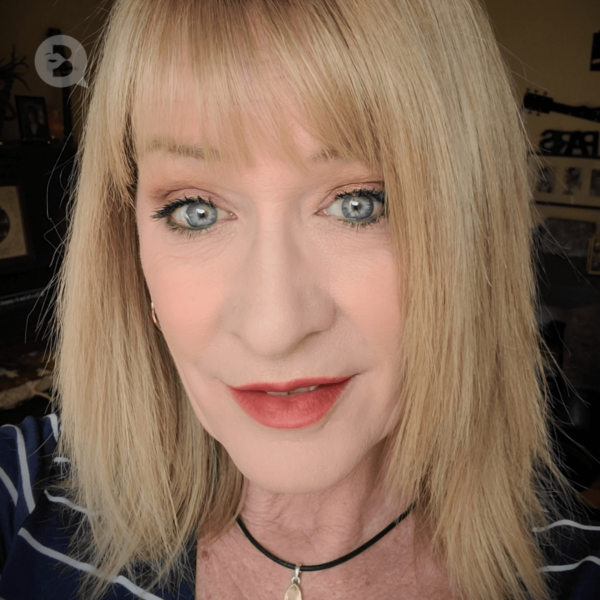
First Thing’s First: What IS a Makeup Artist?
Professional makeup artists are industry experts who work with the face (and body) as a medium. As an MUA, you can apply makeup on others for:
- Special occasions (i.e. weddings, proms, graduations, baby showers, etc.);
- Theater;
- Television;
- Film;
- Fashion;
- Magazines;
- Other productions (i.e. aspects of the modeling industry);
- And more!
Click here to learn even more about the job description of a makeup artist!
Is Professional Makeup Artistry Training Necessary?
In my opinion, professional training is very necessary in the world of makeup artistry. A client will always want to hire a makeup artist who’s been educated and certified! After all, these qualifications provide reassurance that they’re booking someone who can truly give them the results they want.
Moreover, you want to be a makeup artist who thoroughly understands skin, color correcting, proper technique, and all those little tips and tricks that’ll take your applications from good to great. With these skills to arm you, you’re definitely going to be more in-demand for any and all clients – especially when compared to competition who doesn’t have your level of training.
Another benefit of getting professionally trained is that you’ll have an internationally-recognized, reputable certification to add to your resume. As a result, you’ll be able to obtain more clients, have a much stronger skill-set, and gain a competitive edge over other MUAs in your area. Plus, this education will boost your income, as you’ll have the education needed to set your professional business standard!
So, are you ready to get the ball rolling and enroll in a makeup course? If so, I’m here to tell you that ALL of these goals are achievable with QC Makeup Academy!
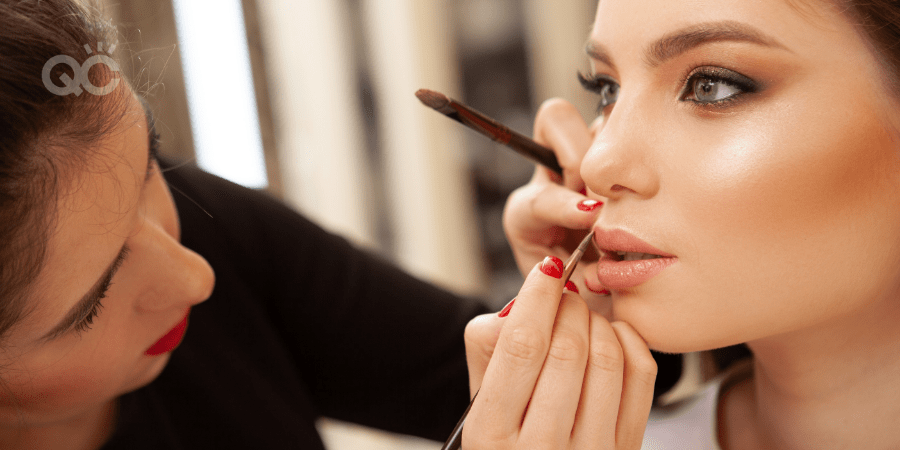
Why I Enrolled with QC Makeup Academy
As a woman who already had a passion for makeup, I decided it was time to up my game. I was a Service Industry worker for years, but I wanted to switch gears. Professional makeup artistry was really appealing to me. So, I began my search. Not long ago, I wound up seeing an ad on Facebook for QC Makeup Academy and it piqued my interest!
I was curious as to how I could get this education by attending a school online. But after reading all the reviews saying how amazing QC’s education was, I was sold. What really caught my attention was that through QC Makeup Academy, I could complete my training on my own schedule. They even had easy, affordable payment options that fit right into my budget!
Why Did I Pick the Master Makeup Artistry Course?
QC Makeup Academy offered a wide variety of courses suitable for ALL levels of experience. Since I’d never been trained in this field before, I wanted a certification program that would teach me everything from the ground up. The Master Makeup Artistry Course was the exact solution I was looking for!
This 7-unit program will teach you all the theory and proper techniques you could possibly want to know. Moreover, you’ll learn how to apply makeup for theater, film and television, weddings, unique fictional characters, and more. Once you enroll, you’ll be paired with a legit industry expert who will be your individual tutor. After each unit, this tutor will examine your work and provide you with extensive audio feedback to help you get better and grow as an artist!
Additional Perks
Another reason I wanted to take this course? There’s a full unit at the end, all about business training! As I knew I’d want to start my own makeup business, this unit was essential to my learning experience. It was also important to me that upon graduation, I would receive an actual certification for my resume. Luckily, the Master Makeup Artistry Course gives you just that! Once you’ve completed the program (and paid for it in full), you’ll be sent a physical copy of QC’s Master International Makeup Professional certification.
Community and networking opportunities were also things I was looking for, too. So, guess how excited I was when I discovered that QC also offers a free Virtual Classroom on Facebook for current, past, and prospective students? In the Virtual Classroom, I am lucky enough to connect with my fellow peers and together, we help one another succeed in our journeys.
I am proud to say that I’ve since graduated from the Master Makeup Artistry Course. If you’ve read this far, then you’re in luck – because I’m now going to give you my honest review of this program (as well as QC in general)!
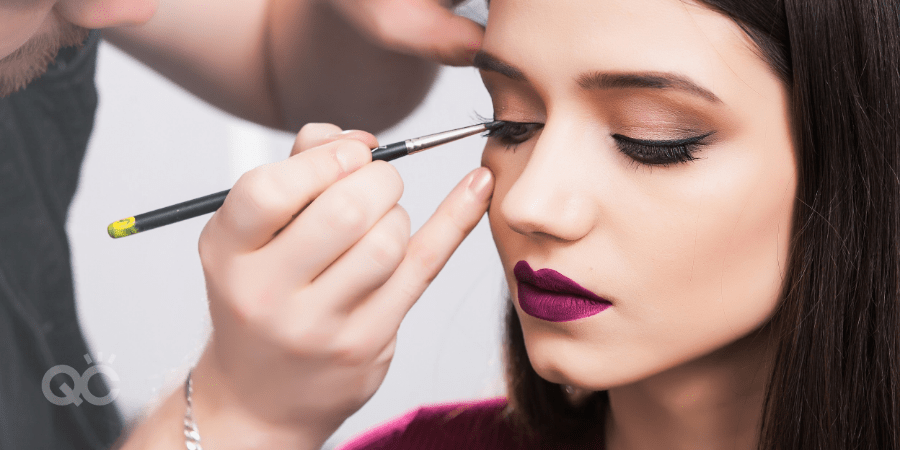
My Review of the Master Makeup Artistry Course
My Personal Highlights of the Program
First, let me start by reiterating that I LOVE QC Makeup Academy! My tutor was Pat Armstrong. I found her to be so sweet and extremely helpful. Pat has worked with the National Women’s Show, Lise Watier, and Shiseido. Her clients include Steven Harper and Olympic Gold Medalist, Elizabeth Manley. Pat’s breakdown and critique of my work were always really informative and helped me understand exactly what I needed to improve along the way.
When I enrolled in the Master Makeup Artistry Course, I not only got a digital copy of all my course materials – I was mailed a physical copy, too. These materials included all of my booklets and a high-quality makeup kit! Each book was extremely informative! Furthermore, the fun, educational videos hosted by the lovely Nathan Johnson were perfect learning tools. Nathan is a gem. He shows you exactly how the look should be applied, with a few little personal tips thrown in.
Another awesome perk is that even though the course is done online, there are TONS of practical assignments that give you critical hands-on training. I found this hands-on learning to be especially exceptional. Of all my assignments, my favorite one was the Stylized Shoot. I chose to do a makeup application for a 50’s-style bridal photoshoot. It was so much fun because we had to style the entire model from head to toe! I used my old wedding dress, did a classic red lip, and shot it in front of our old piano. I was over the moon with how this assignment turned out!
3 Important Lessons I Learned In My Training
Throughout the course of my program, 3 lessons I learned that I found to be especially important were:
- If you have to second-guess your work, it’s not ready to submit.
- Use quality products for the best results.
- Many of your products can actually have multiple different uses.
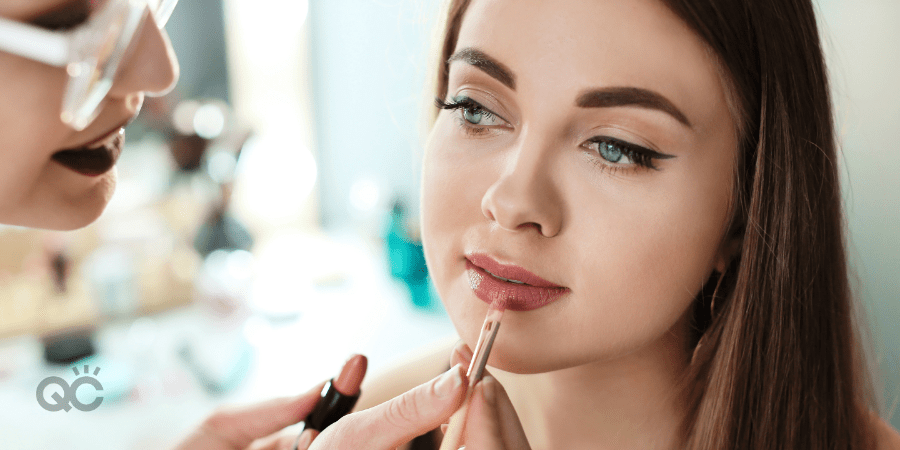
3 Key Lessons I DIDN’T Know Before Taking the Master Makeup Artistry Course
- Less can often be more. For example: applying eyeliner with a dark powder and an angled brush along the lash line can open an eye, without it being overpowering. Sometimes, that’s all you need to have a wide-awake-looking eye!
- Eyebrows are meant to be sisters, not twins.
- Sometimes, all a client needs are to balance their complexion – instead of covering the entire face with foundation.
Remember: You’ll Get What You Put Into It
Here’s the honest truth: no, the Master Makeup Artistry Course isn’t easy. It’s not meant to be! Rather, it’s designed to push you. It’ll force you to evaluate your work objectively, practice over and over again, and be your own biggest critic. In the world of professional makeup, this is the ONLY way you for to learn properly and maximize your chances for success!
Personally, I found all of my assignments to be quite challenging. However, that only ever reiterated to me that I’d picked the right school and the right course. After all, you shouldn’t want your training to be basic and easy! This course will challenge you, but in a good way. It’ll give you every tip and trick taught by industry professionals. This way, you’ll have the best education possible. You’ll be prepared to be the BEST makeup artist you can be!
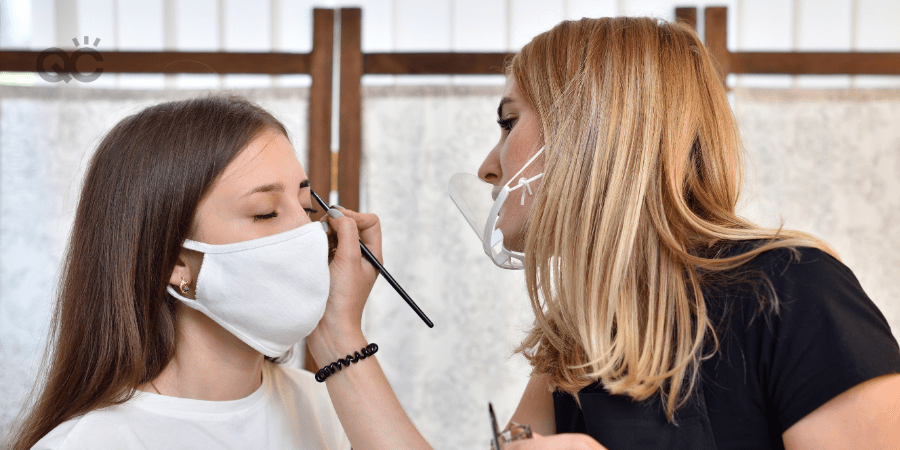
So, Should YOU Enroll in QC’s Master Makeup Artistry Course?
100% YES!
I absolutely encourage you to join QC Makeup Academy and enroll in this course if you’re considering a professional education in makeup artistry. Even if you’re already an established MUA, I recommend this school. Maybe you don’t yet have formal training. Perhaps you do but want to build upon your existing skill-set. Either way, QC will offer you something to better your craft!
In my experience, the Master Makeup Artistry Course can truly help you level up your game. This is because it’ll give you the proper tips and techniques needed to become an even better MUA. I’m so happy I chose QC Makeup Academy. This school has allowed me to start my career on the right track. In fact, I have plans to add even more QC courses to my repertoire in the future!
Thank you so much for taking the time to read my honest review of QC Makeup Academy’s Master Makeup Artistry Course. I really appreciate it! Please feel free to leave a comment below, and please come connect with me in the Virtual Classroom on Facebook! I look forward to seeing you there!
